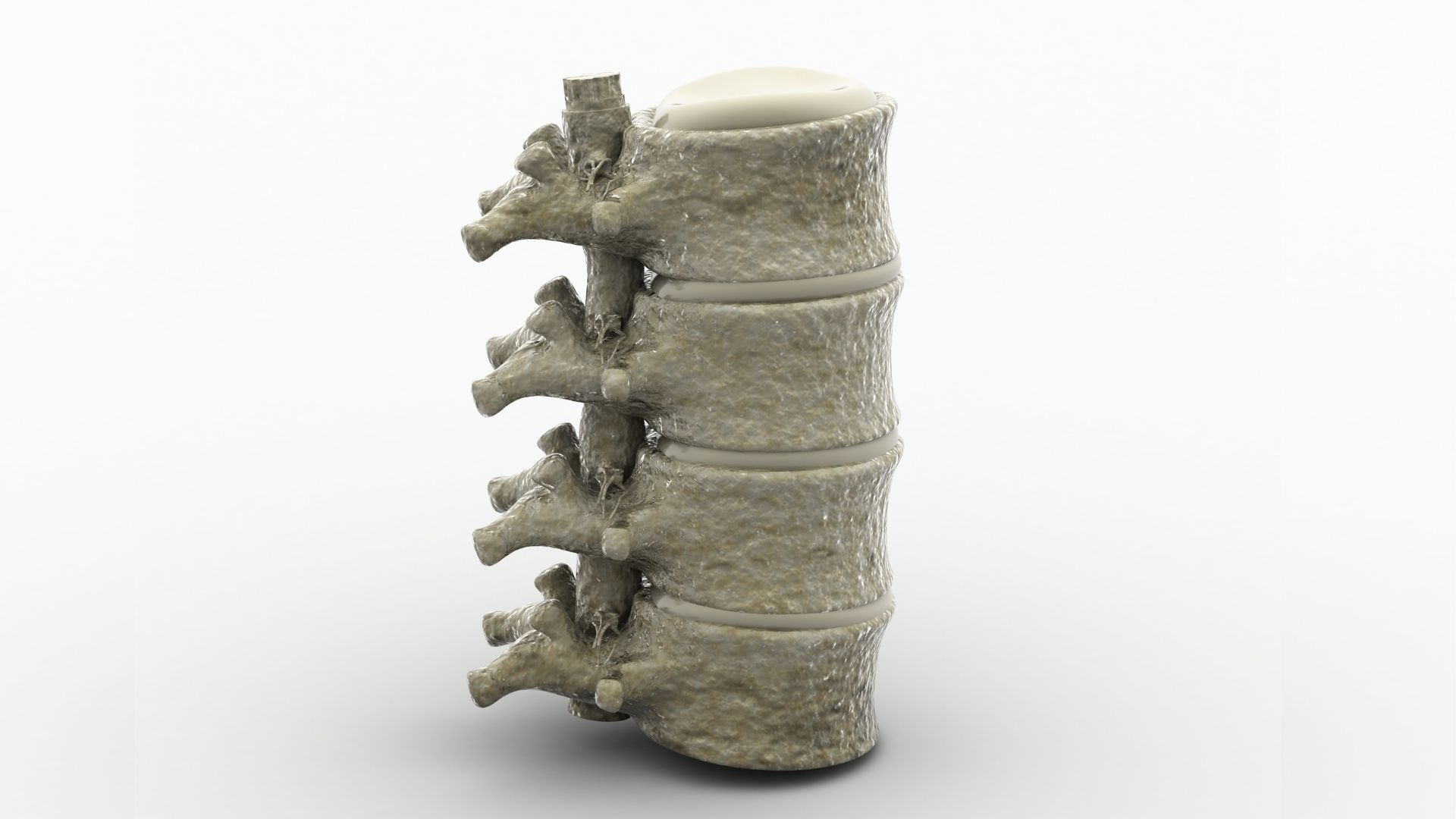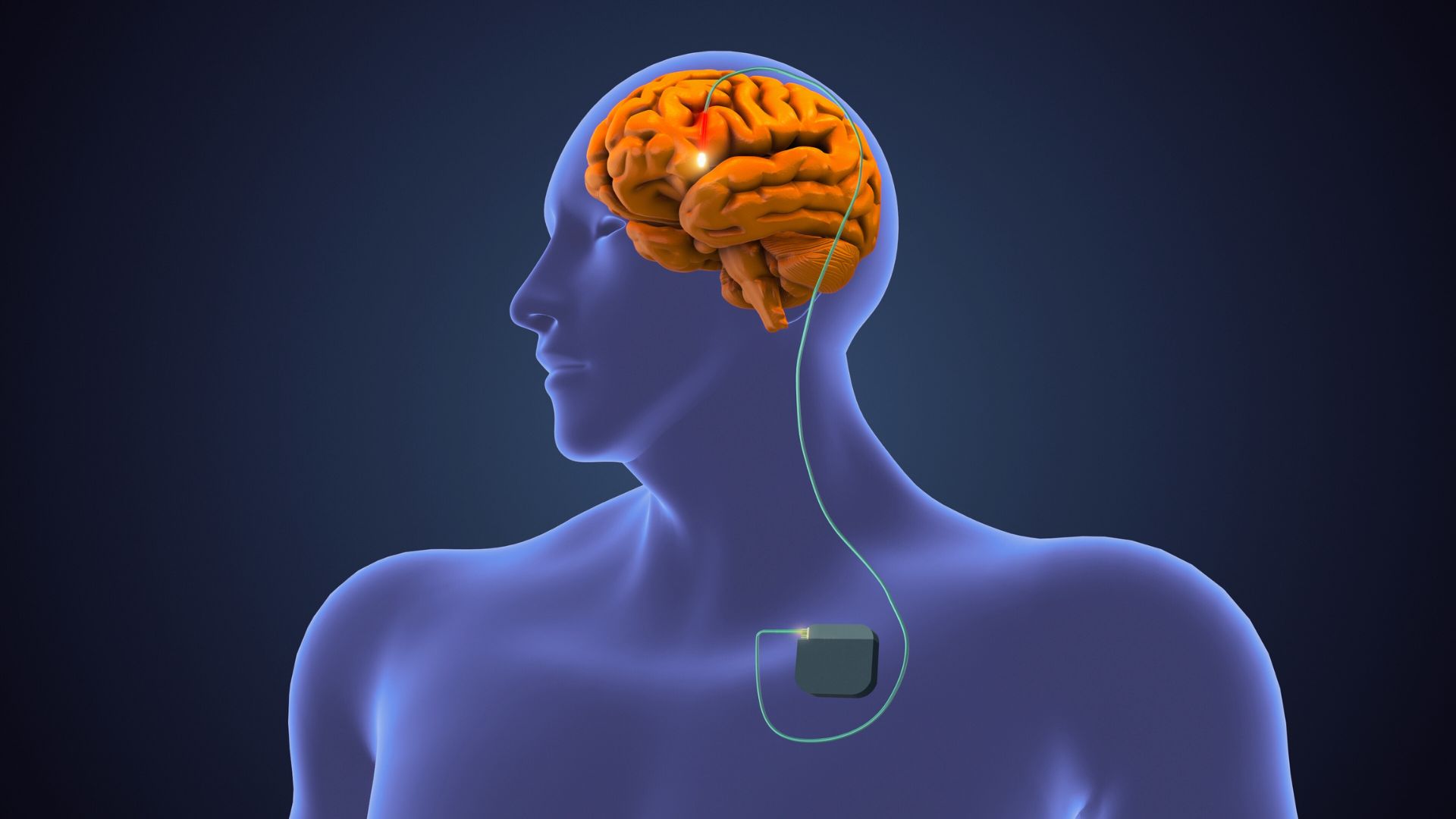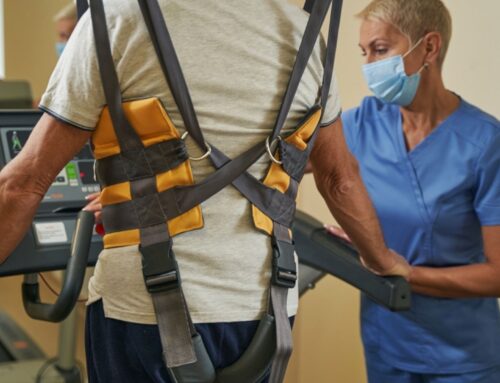Transverse myelitis is a rare neurological condition that can occur at any age. Band-like sensory changes at the thoracic level of the spinal cord that are typical with this condition make it unique. Symptoms can present suddenly, including sensory changes, weakness, pain and bladder and bowel impairments.
In this article, we examine the causes, signs and symptoms of transverse myelitis, and how physical therapy can help mitigate functional impairments resulting from this neurologic condition.
What is Transverse Myelitis?
Transverse myelitis is a neurologic condition resulting from inflammation in the spinal cord. Transverse refers to the common clinical finding of sensation change across the trunk of the body; while myelitis refers to inflammation of the spinal cord.[i] A band like sensation is often evident at the level that is affected.
Symptoms typically include sensory changes, weakness, pain and bladder and bowel impairments. Physical therapy can help mitigate functional impairments resulting from this neurologic condition.
What Causes Transverse Myelitis?
Inflammation within the spinal cord interrupts the communication of nerve fibers with the rest of the body. Consequently, nerve signaling below the level of injury is affected, which can cause pain, muscle weakness and sensation change below the affected level.
Infections and immune system dysfunctions that damage the insulating layer of nerves, called myelin sheaths, have been attributed as potential causes of transverse myelitis. However, despite transverse myelitis being commonly associated with autoimmune diseases, the exact cause remains unknown.
As a result, most cases of the disease are idiopathic. There seems to be no genetic factors that increase the likelihood of being diagnosed with traverse myelitis. The condition occurs in individuals of any age, sex and race, with an incidence rate of one (severely affected) to eight (mild symptoms) in a million, per year.[ii]
Signs and Symptoms of Transverse Myelitis
The symptoms of transverse myelitis are contingent on the level of the spinal cord that is affected. Since transverse myelitis affects the entire spinal cord at a specific level, signs and symptoms present bilaterally, below the level of injury. Common signs and symptoms of transverse myelitis include:
- Abnormal sensory changes, such as numbness, tingling, chilling or pricking sensations
- Pain
- Weakness in the legs and less commonly the arms
- Bowel and bladder dysfunction, resulting in incontinence or constipation
Symptoms may present suddenly or over the course of a few days or even weeks. Transverse myelitis is typically diagnosed by a physician through a complete medical history, a thorough neurological examination and diagnostic imaging.
An MRI will identify if a lesion is present, a CT scan will rule out any structural causes of symptoms, and a lumbar puncture will determine the presence of any inflammation.[iii]
Differential diagnoses includes multiple sclerosis, Guillain-Barré syndrome, and disc herniation. However transverse myelitis is a rare condition and unique in the typical band like sensory changes typical at the thoracic level of the spinal cord.
What is the Outlook for Someone with Transverse Myelitis?
More than one-third of patients with transverse myelitis recover from the disease with little to no residual problems.[iv] While the healing process may take months to years, there are a variety of management options available to those who suffer from transverse myelitis.
Medical management includes corticosteroid drugs to decrease swelling and inflammation, and plasma exchange therapy for those who are unresponsive to steroids. In addition, physical therapy can help to alleviate symptoms of the disease and restore functional independence.
Physical Therapy and Transverse Myelitis
Physical therapy treatment focuses on addressing the main impairments that result from the disease, such as decreased strength, flexibility and coordination. It is essential that patients begin physical therapy treatment early on in their recovery process to prevent secondary complications.
Daily range of motion exercises will help to prevent contractures and increase joint movement. Tailored resistance exercises will help to increase strength and restore muscle function. In combination, these exercises will help to improve general mobility and reduce the risk of complications associated with prolonged inactivity.
Physical therapy has been shown to improve functional mobility and independence on a variety of objective measures in patients with transverse myelitis.[v] Depending on individual impairments, transfers, gait training and wheelchair training may also be targeted.
At Propel Physiotherapy, our highly experienced clinicians can help manage and alleviate symptoms of this condition. If you or someone you know has been diagnosed with transverse myelitis, book an appointment with one of our therapists so they can help maximize your everyday function.
References
[i] Transverse Myelitis Fact Sheet, National Institute of Neurological Disorders and Stroke
[ii] Acute transverse myelitis: incidence and etiologic considerations, M Berman, S Feldman, M Alter, N Zilber, E Kahana
[iii] Transverse Myelitis — a Review of the Presentation, Diagnosis, and Initial Management, Timothy W. West, Lou Ruvo Center for Brain Health and the Mellen Center for Multiple Sclerosis Treatment and Research Neurological Institute, Department of Neurology, Cleveland Clinic
[iv] Acute transverse myelitis: Incidence and etiologic considerations, Miriam Berman, Shad Feldman, Milton Alter, Nelly Zilber, Esther Kahana
[v] Rehabilitation results of patients with acute transverse myelitis., Calis M1, Kirnap M, Calis H, Mistik S, Demir H
Written by









